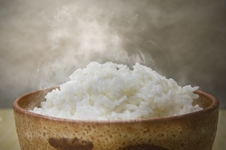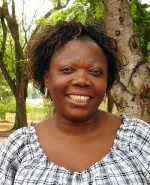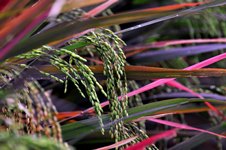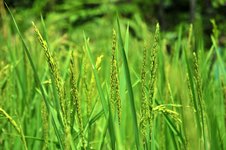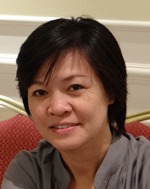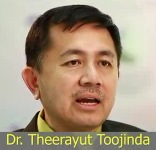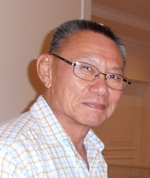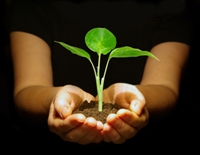
“Women can do advanced agricultural science, and do it well!” Elizabeth Parkes, cassava researcher, Ghana
Being a woman scientist in today’s world (or at any time in history!) is no mean feat, science traditionally having been the domain of men. We are therefore drawn to this sub-theme: Inspiring change, in addition to the global theme Equality for women is progress for all, To mark International Women’s Day tomorrow, UNESCO has developed an interactive tool which collates facts and figures from across the world on women in science. The cold scientific truth displayed in the attractive petri dish design shows that only 30 percent of researchers worldwide are women.
At GCP, we have been fortunate enough to have a cross-generational spectrum of, not only women scientists, but that even rarer species, women science leaders – who head a project or suite of projects and activities, and who actively nurture and mentor future science leaders – to ultimately contribute to the fulfilment of our mission: Using genetic diversity and advanced plant science to improve crops for greater food security in the developing world. The United Nations has designated 2014 as the Year of Family Farming. GCP’s women researchers have contributed to improving the lives of their farming counterparts the world over, especially in the developing world where on average, 43 percent of the agricultural labour force are women, rising to 60 percent and 70 percent in some regions. (FAO)
Please mind the gap…to leap to that all-important initiation into science
The UNESCO tool mentioned above and embedded to the left allows users to “explore and visualise gender gaps in the pipeline leading to a research career, from the decision to get a doctorate degree to the fields of science that women pursue and the sectors in which they work” with this affirmation: “Perhaps most importantly, the data tool shows just how important it is to encourage girls to pursue mathematics and science at a young age.”
In our International Women’s Day multimedia expo, we profile the life and work of a selection of our smart scientific sisters through words, pictures and sound, to explain just how they overcame obstacles, from taking that first hurdle to study science at an early age, to mobility up the research rungs to reach the very top of their game, all the while balancing work, life and family.
A blogpost fest to introduce our first special guests
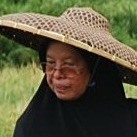
Masdiar Bustamam
We begin our show with a blogpost fest, and first up is GCP’s original Mother Nature, renowned scientist and constant gardener of the molecular breeding plot, Masdiar Bustamam. After a virtual world-tour of research institutes early on in her career, Masdiar took the knowledge of molecular breeding back home, to the Indonesian Center for Agricultural Biotechnology and Genetic Resources Research and Development (ICABIOGRAD), where she personally took up the challenge to work with the fledgling world of biotechnology, set up a lab, and helped establish molecular breeding in her country. In an amazing 37-years-odd research career, Masdiar tended not only tender rice shoots, but also budding blossoms in the form of her many students, whom she nurtured and mentored throughout their studies, and who have now seamlessly inherited her mantle to carry on the mission with the same ever-bright spirit. More
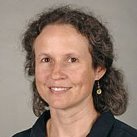
Rebecca Nelson
We now skip continents and oceans to meet the feisty, continent- and crop-hopping scientist, Rebecca Nelson (Cornell University, USA). “I wanted to get out into the world and try and have a practical impact instead of doing research for the sake of research,” Rebecca says – and that she did, first leaving her native USA to work in the International Rice Research Institute (IRRI) in the Philippines. There she teamed up with friend and colleague, Masdiar Bustamam, to establish Masdiar’s laboratory at ICABIOGRAD, Indonesia. The American continent then called her back, where she moved countries and institutes, and switched from rice to maize research, marking the launch of her GCP experience – which simultaneously introduced her to her a whole new network of international crop researchers. This rich research tapestry was woven together by a poignant pain deep in her heart, as a mother herself, of “so many mothers not being able to feed their families.” Rebecca wanted to combat this problem, and crop science is her weapon. More
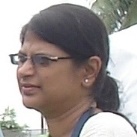
Zeba Seraj
Next, we meet another true mother of molecular plant breeding, Zeba Seraj (University of Dhaka, Bangladesh). Zeba, whose mind is perpetually on call in the pursuit of science, has been around the world, and from plants to animals and back again in the course of her multifaceted science career. During her PhD and postdoc experience in the UK, still with fauna, she cultivated her expertise in molecular biology and recombinant DNA technology, but a lack of opportunities in that field back in Bangladesh saw her enter the world of crop science, where she has remained ever since. Back at her alma mater, the University of Dhaka, she founded a molecular biology lab, and has nurtured and inspired generations of young biochemists. Her GCP project, using molecular markers to develop salt-tolerant rice, was a real eye-opener for her, and allowed her to truly ‘see’ how applied science and such a practical project would have a direct impact on her country’s food security, now and in the future. More
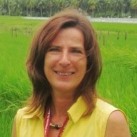
Sigrid Heuer
Our next scientist is also truly motivated by putting theory into practice through the application of upstream research all the way down the river, and directly into farmers’ fields. Sigrid Heuer (now with the Australian Centre for Plant Functional Genomics), a German national, has pursued her scientific ventures in Europe, Africa, Asia, and now Oceania, with many challenges along the way. Enter the Generation Challenge Programme, and the chance for Sigrid (then at IRRI) to lead a major project, the Pup1 rice phosphorus uptake project, which taught Sigrid the A–Z of project management, and gave her ample scope for professional growth. Her team made a major scientific breakthrough, which was not only documented in international journals, but was also widely covered by global media. From this pinnacle, Sigrid passed on the baton to other scientists and moved on to new conquests. More
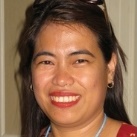
Arllet Portugal
Now, all this research we’ve been celebrating generates a massive amount of data, as you can well imagine. What exactly can our scientists do with all that data, and how can they organise them? GCP’s Arllet Portugal, hailing from The Philippines, gives us the lowdown on smart and SHARP data management whilst also giving us some insights into how she started out on the long and winding road to leading data management for GCP’s Integrated Breeding Platform. In particular, Arllet describes the considerable challenge of changing researchers’ mindsets regarding the importance of effective data management in the context of their research, and enthuses over the excitement with which developing-country researchers welcome the GCP-funded electronic tablets they now use to collect and record data directly in the field. More
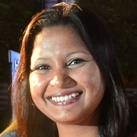
Armin Bhuiya
If there were a muse for young women scientists, it might very well be the subject of our next blogpost profile, Armin Bhuiya (Bangladesh Rice Research Institute). After completing her master’s degree on hybrid rice in her native Bangladesh, Armin was already thinking like a true change-catalyst scientist, trying to discover what line of research would be the most useful for her country and the world. After much deliberation, she embarked on a PhD focusing on developing salt- and submergence-tolerant rice. This wise choice would take her to study under the expert eye of Abdelbagi Ismail at IRRI, in The Philippines, with the helping hand of a GCP–DuPont postgraduate fellowship. There, she learnt much in the way of precise and meticulous research, while also taking advantage to self-train in modern molecular plant breeding methods. Our bright resourceful student has now advanced to the patient erudite teacher – as she takes home her knowledge of high-tech research methods to share with her colleagues and students in Bangladesh. More
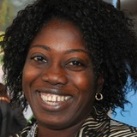
Elizabeth Parkes
Hello Africa! Switching continents and media, we now we move from the written medium to tune in to the melodic tones of Elizabeth Parkes (Crops Research Institute [CRI] of Ghana’s Council for Scientific and Industrial Research [CSIR], currently on leave of absence at the International Institute of Tropical Agriculture [ IITA]). We’re now at profile number seven in GCP’s gallery of women in science. Elizabeth, who is GCP’s Lead Cassava Researcher in Ghana, narrates an all-inclusive engaging story on the importance to agriculture of women scientists, women farmers, and cassava the wonder crop – all captured on memorable sound waves in this podcast.
If the gravity of words inscribed holds more weight, you can also read in depth about Elizabeth in a blogpost on this outstanding sister of science. Witness the full radiance of Elizabeth’s work in the life-changing world in which she operates; as she characteristically says, “I’ve pushed to make people recognise that women can do advanced agricultural science, and do it well.” And she is no exception to her own rule, as she grew professionally, apparently keeping pace with some of the giant cassava she has helped to develop through the years. But it is her role as nurturer, mentor and teacher that really raises her head-and-shoulders above the rest, from setting up a pioneering biotech lab at CRI–CSIR to conscientiously mentoring her many students and charges in work as in life, because, for Elizabeth, capacity building and cassava are inextricably coupled! More
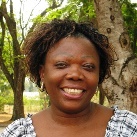
Marie-Noëlle Ndjiondjop
In the wake of some recent high-profile screen awards, we close our multimedia expo with impressions of our science sisterhood through the medium of the seventh art: the magic visual world of the movies! A good fit for a Friday!
The following tasteful and tasty (you’ll see why!) blogpost takes our film fans right onto the red carpet to rub shoulders with our scientific screen stars!
The first screen star you’ll meet is Marie-Noëlle Ndjiondjop (Africa Rice Center), Principal Investigator (PI) of GCP’s Rice Research Initiative, who opens the video-viewing session with seven succulent slices of rice research delight. Her movies are set in the rice-growing lands of Africa, where this savoury cereal is fast becoming a staple, and tackles the tricky topics of rice-growing constraints, capacity building, molecular breeding methods, and the colossal capacity of community in collaborative research projects.
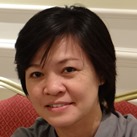
Jonaliza Lanceras-Siangliw
The following feature introduces the talented GCP PI Jonaliza Lanceras-Siangliw (BIOTEC, Thailand), whose community-minded project, set in the Mekong region, focused on strengthening rice breeding programmes by using a genotyping building strategy and improving phenotyping capacity for biotic and abiotic stresses. Though this title is something of a spoiler alert, we hope you tune in to this comprehensive reel to see the reality of molecular rice breeding in the Mekong. More
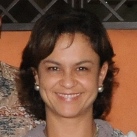
Soraya Leal-Bertioli
Last, and by no means least, is a captivating collage of clips featuring GCP researcher, Soraya Leal-Bertioli (EMBRAPA, Brazil) waxing lyrical about that hard genetic nut to crack: the groundnut, and how GCP’s Tropical Legumes I (TLI) project was crucial in getting the crop breeding community to share genetic resources, molecular markers, knowledge, and tools on a cross-continental initiative breaking boundaries in multiple ways. Video collage
Links
- See what we’ve been up to on some of the social media streets, in this continuing collage of our International Women’s Day tweets in Storify. More #IWD2014 posts on our Facebook page
- From our Integrated Breeding Platform (IBP), more portraits of women in science, who are keen users of IBP tools and beneficiaries of the Platform’s capacity-building opportunities.
- International Women’s Day at CGIAR in text and in pictures








